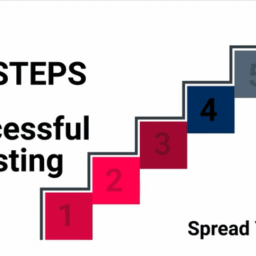
It’s that time of year again, American Thanksgiving has come and gone and the Black Friday deals are all over the Radio, TV and Social Media. A good friend of mine told me a story over the weekend of a stressful trip to the Crescent Shopping centre with his fiancé on Black Friday. They are still together….. but just about! If you can’t face the stress of these packed shopping centres or have a pathological fear of IKEA, well you’re in luck as we also have Cyber Monday and all these same deals are available online from the comfort of your sitting room.
The point is, whether your favourite hobby is going shopping in BT’s or like me you can’t resist the deals on Debenhams.ie, everyone loves a good deal, discount, give away or sale. It begs the questions:
- How do we know if we are getting a good deal or not?
- Do you consider what you are buying and the value it will add?
- Do you even ask the question, do I need this?
I don’t think that these are questions asked never mind answered! Most of us look at the relative price today compared to yesterday. If you were willing to pay €100 for those shoes yesterday and now you can get them for €80, then they are better value today than they were yesterday. Usually this is all the info we need – “A 20% discount? How could I not buy them, the more I spend the more I save!”
So, with all the consternation about where you can find the best deal, why is no one looking at equity markets? Stock markets have been on a downward trend since September, in fact they are giving us about a 10% discount from what you would have paid in September. Unlike those shoes though, most people think stocks are better value when they go up in price. Unfortunately, that’s not how stock markets work. When markets fall, they become better value for buyers, just like when retailers drop the price of their goods or services.
Here are somethings we know based on historical evidence:
- In a calendar year the average annual drop from peak to trough for equity markets is about 14% (since 1980).
- In that same period equity markets have given a positive return of about 9%-10% per annum.
- Markets have fallen by about 10% in the last 6 weeks, this is a correction and is perfectly normal.
- Markets are better value than they were a few weeks ago.
- In the long term, equity markets trend upwards and getting in at a lower price increases your expected return.
Here are some things we don’t know (and no one else does either):
- We don’t where the stock market is going to be tomorrow, it could go up and it could go down.
- We don’t know what stocks, sectors or regions will perform best in the coming weeks.
- We don’t know if this is a short term correction and markets will start to rise again or if this is part of a deeper market decline like we saw in 2008.
So what is our conclusion based on what we do know and what we don’t know? Well, the evidence tells us that markets are better value today than they were yesterday and that markets trend upwards in the long term. For most rationale long term investors that would mean that now is a better time to invest than yesterday was.
If you would like to explore this idea further, please feel free to contact any member of the Metis Ireland team for a coffee.
Cian Callaghan
Head of Financial Planning
Disclaimer
Metis Ireland Financial Planning Ltd t/a Metis Ireland is regulated by the Central Bank of Ireland.
All content provided in these blog posts is intended for information purposes only and should not be interpreted as financial advice. You should always engage the services of a fully qualified independent financial adviser before entering any financial contract. Metis Ireland Financial Planning Ltd t/a Metis Ireland will not be held responsible for any actions taken as a result of reading these blog posts.
Disclaimer
Metis Ireland Financial Planning Ltd t/a Metis Ireland is regulated by the Central Bank of Ireland.
All content provided in these blog posts is intended for information purposes only and should not be interpreted as financial advice. You should always engage the services of a fully qualified financial adviser before entering any financial contract. Metis Ireland Financial Planning Ltd t/a Metis Ireland will not be held responsible for any actions taken as a result of reading these blog posts.
















